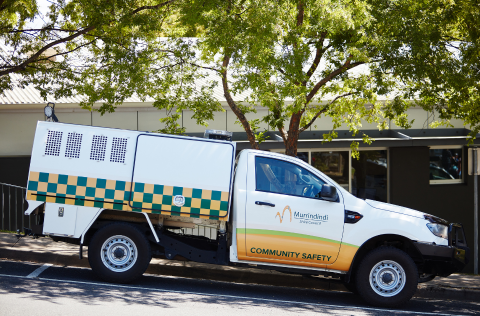Local laws and enforcement

Council is responsible for promoting compliance with, and enforcing, a range of laws and regulations. These laws come from a number of places including:
The purpose of these laws is to ensure the safety and wellbeing of all community members and to facilitate a harmonious community life.
Council aims to be fair, consistent, timely and transparent in enforcing these laws and regulations.
What is the purpose of Community Local Law?
Murrindindi Shire Council's Community Local Law covers a range of rules governing how we live in our community.
The objectives of the Community Local Law are to provide for:
- the peace and order of the municipality
- a safe and healthy environment so that our community can enjoy a quality of life that meets its expectations
- the safe enjoyment and fair use of public places
- the protection of Council property
- the amenity and environment of the municipality
- the reasonable use and enjoyment of private land
What gets enforced?
While Council is always happy to discuss compliance concerns with members of the community, it is worth keeping in mind that there will always be a greater demand for compliance action than resources available to deliver them. Priority is given to issues that impact public health, wellbeing, safety or the environment or those which may result in significant commercial gain for the offender (e.g. stockpiling waste). As a result, not all alleged compliance issues will be investigated in detail or within the same time-frames.
Council will be transparent about its compliance priorities and prioritisation decisions.
What is Council’s approach to compliance?
While everyone needs take responsibility for complying with the law, Council’s approach to is to help individuals and businesses be aware of their compliance responsibilities and support them to meet their obligations. From time to time, based on the risk of harm and the culpability of the offending, a sanction (such as a fine or prosecution) may be used as a deterrent, but this isn’t the first step in Council’s compliance process.
Promoting compliance starts with information, education and awareness so community members and businesses are aware of their responsibilities, and support, advice and guidance to help people comply.
What happens once I’ve been issued a compliance notice?
Any compliance notice will be clear about what you are required to do and the timeframes for doing this. If you are not clear, then speak to the Council officer. A compliance notice is legally enforceable, so you are required to do the things set out in the notice. Council officers will check that it has been done and will take further action if not.
What happens if you do not agree with Council’s compliance decision?
If you feel that Council’s enforcement action is incorrect, you can request a review.
Where the relevant legislation sets out a specific process for a review, that is the process which applies (e.g. application to VCAT for a review of a planning permit decision). In other cases, the first step is an internal review by Council.
If you would like to request an internal review, visit our Appealing an Infringement page. The review will be completed in a timely manner.
Additionally, you can refer the matter to a relevant external body, such as Ombudsman Victoria.